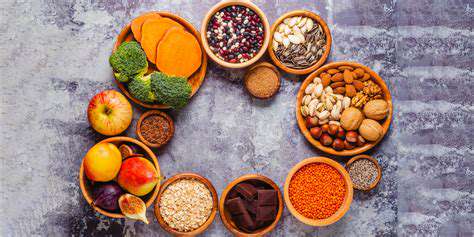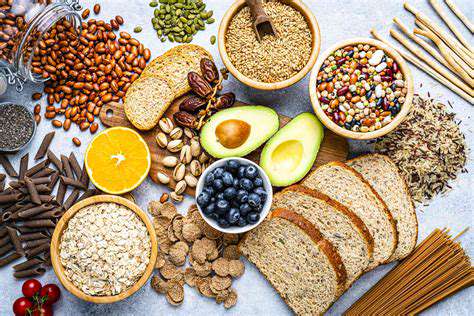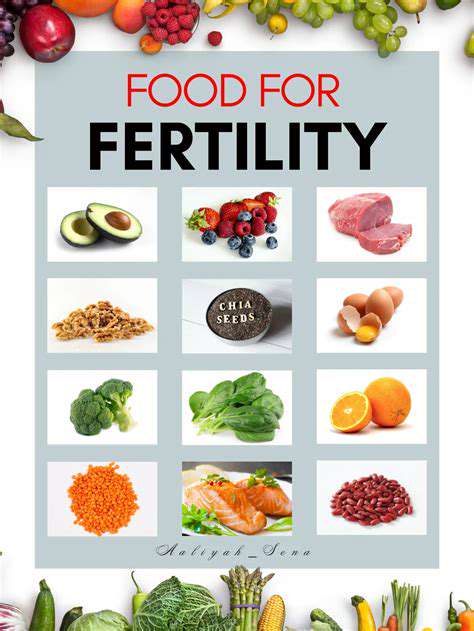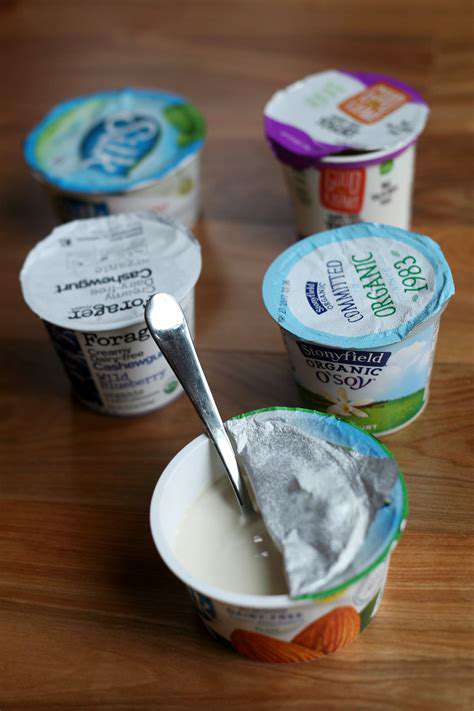The Role of Fiber in Weight Loss
Fiber-Rich Foods and Weight Loss Strategies

Fiber's Crucial Role in Weight Management
Fiber, a type of carbohydrate that the body can't digest, plays a significant role in weight loss and overall health. It contributes to feelings of fullness and satiety, which can help prevent overeating. By keeping you feeling satisfied for longer periods, fiber can reduce the likelihood of reaching for unhealthy snacks or consuming excessive portions of meals. This is particularly beneficial for individuals aiming to lose weight, as it helps control calorie intake more effectively.
Fiber-rich foods are often low in calories and high in volume, meaning you can consume a substantial amount without significantly increasing your overall caloric intake. This combination is ideal for weight management, as it promotes a sense of fullness without overloading your body with unnecessary calories.
The Impact of Soluble Fiber
Soluble fiber, a type of fiber that dissolves in water, is particularly effective in promoting weight loss. It forms a gel-like substance in the digestive tract, slowing down the absorption of sugar and promoting a more gradual release of glucose into the bloodstream. This slower release of glucose helps regulate blood sugar levels, which is crucial for preventing energy crashes and cravings that can lead to overeating.
Soluble fiber is also known for its ability to bind to cholesterol in the digestive system, potentially lowering levels in the blood. Lowering cholesterol levels is often an important aspect of a healthy weight-loss strategy.
Insoluble Fiber for Digestive Health
Insoluble fiber, which doesn't dissolve in water, is essential for maintaining regularity and promoting healthy digestion. It adds bulk to stool, which aids in moving waste through the digestive system efficiently. This is important for overall digestive health, and can contribute to weight loss indirectly, as constipation can lead to bloating and discomfort, potentially affecting appetite control.
Fiber-Rich Foods to Incorporate
A wide variety of foods are rich in fiber. Examples include fruits like berries and apples, vegetables like broccoli and carrots, whole grains like oats and brown rice, and legumes like beans and lentils. Incorporating these foods into your diet can be a simple and effective way to increase your fiber intake. Choosing whole, unprocessed foods is generally preferable over refined or processed options, as they tend to be higher in fiber content and offer additional nutrients.
By making smart food choices and increasing your fiber intake, you can significantly improve your digestive health and contribute to your weight-loss goals.
Fiber and Weight Loss: A Balanced Approach
While fiber is a valuable tool in weight management, it's important to remember that it's part of a broader approach. A balanced diet that includes a variety of nutrients, regular exercise, and stress management is crucial for achieving sustainable weight loss and overall well-being. Fiber alone won't magically melt away excess pounds. It's a valuable addition to a comprehensive weight-loss strategy.
Consult with a healthcare professional or registered dietitian before making significant dietary changes, especially if you have any underlying health conditions. They can provide personalized guidance and ensure that your dietary choices align with your individual needs and health status.











